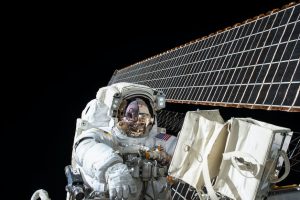It’s not old news that both Richard Branson and Jeff Bezos officially reached low-orbit in their privately owned spacecrafts. These two successful trips are just the latest renditions of the “Billionaire Space Race,” a national effort by entrepreneurs to reach space by sending suborbital rockets and tourist space flights to the ionosphere.

In retrospect, history demonstrates that efforts to lead in space exploration are often useless rivalries between adversaries. These attempts actually have the potential of drastically impacting the functions of society.
In our case, it is important to consider the Cold War Space competition between the United States (U.S.) and the Soviet Union (USSR).
While it often fuelled Cold War rivalry and paranoia, the 20th Century Space Race had a significant impact on the national agenda’s focus on education in STEM. Similar academic efforts are expected as a result of the current, 21st Century Billionaire Space Race.
Moreover, although the two races to space have different underlying motivations, one fueled by political concerns of national-self worth, and the other by the separation of political partnerships and the shift to privatization, the two share a high level of mainstream media exposure.
In the former race, the amount of coverage popularized STEM fields. It also loosened the political and social constraints tied to the pursuit of employment in the workforce. Nowadays, with existent high-profile media, this could potentially mean a greater interest in STEM-based career options for younger generations, leading to higher-rates of demand in STEM fields and in the U.S.’s Educational agenda.
Though media coverage is by no means the defining factor for implementing an effective and long-lasting educational reform, it is definitely a good starting point.

Lastly, as the age of space resurges, so do the efforts for a better-equipped society.
Because of its relevance to the future, the contemporary world has experienced a high demand for a better STEM education, and the current billionaire race to space is expected to play a role in the effort.
This can significantly impact education in the U.S. Nowadays, a background in STEM makes people more employable since they fit the labor demand. With higher standards of investment in such practices because of their relevance to the future, as well as the public’s surge of interest in them, the outcome for these sectors can mean significant improvements in the upcoming years.
The modern-day space race is an excellent example of the need for the STEM disciplines to be improved for the sake of the new generations who depend on it.
Resources:
- https://www.compositesworld.com/articles/a-new-space-race
- https://the-gist.org/2020/06/the-modern-space-race/
- https://en.wikipedia.org/wiki/Billionaire_space_race
- https://www.theguardian.com/science/2021/jul/16/the-space-race-is-back-on-but-who-will-win
- https://study.com/academy/lesson/the-space-races-impact-on-math-science-education-in-the-us.html#:~:text=The%20launch%20of%20Sputnik%20spurred%20the%20Space%20Race%2C%20which%20was,Defense%20Education%20Act%2C%20or%20NDEA
- https://blog.tcea.org/space-race/
- https://news.harvard.edu/gazette/story/2007/10/how-sputnik-changed-u-s-education/
- https://www.npr.org/templates/story/story.php?storyId=14829195
- https://www.dese.gov.au/australian-curriculum/national-stem-education-resources-toolkit/introductory-material/why-stem-important
- https://alphahistory.com/coldwar/space-race/#:~:text=While%20it%20often%20fuelled%20Cold,computer%20science%20and%20solar%20power
- https://www.forbes.com/sites/forbestechcouncil/2021/09/14/why-the-billionaire-space-race-is-a-good-thing/?sh=61def5cd2899
- https://www.aei.org/technology-and-innovation/how-the-billionaire-space-race-benefits-us-all/
Written By: Estefania Olaiz
October 29, 2021

